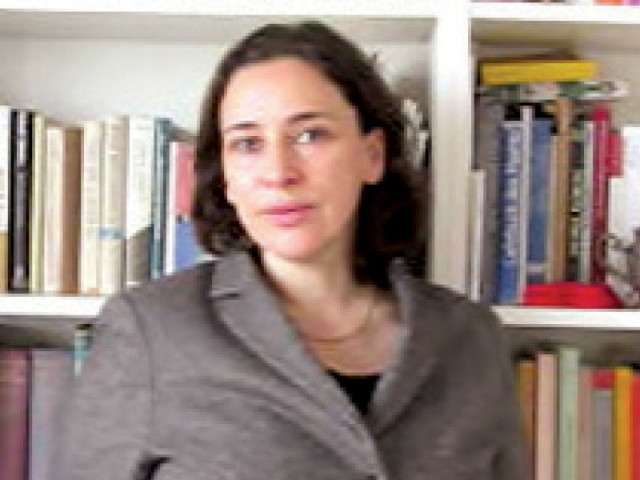Linguistic link: Motivation, economic empowerment key to saving endangered languages
With fewer native speakers, the Wakhi Pamiri language faces extinction.

Says with motivation, strengthening of economic base and provision of inclusive education, Wakhi and other endangered languages can be preserved and promoted,
Some two decades ago while German linguist Beate Reinhold was pursuing her PhD in Iranian studies, she developed an interest in the Wakhi, one of the Pamiri dialects spoken in four countries around the Pamir knot. Fluent in the language after having lived in Passu, a village in Gojal valley on China border she has also authored a book on Wakhi people of Gojal valley in German language.
On her recent visit to Pakistan, she mentored a 12-day workshop on multilingualism and regional languages at Quaid-i-Azam University. She was also part of an international committee comprising Wakhi speakers from Pakistan, Afghanistan, Tajikistan, China and Russia who proposed the standardisation and formalisation of the Wakhi alphabet.
“The Wakhi language is spoken in various parts of the world, but it has been very enlightening studying it in Gilgit-Baltistan as there are different communities who speak this language in Gojal, Ishkoman and Broghil valleys. Each valley is different, but there are certain regional similarities,” said Reinhold. She noted that the harsh weather conditions and unforgiving terrain have an enormous impact on the lifestyle of people living in the north, which drives similarities as communities develop skills to cope, such as architecture and irrigation.
Dr Reinhold noted that Wakhis that came from Afghanistan’s Wakhan corridor to Gilgit-Baltistan, about 200 years ago built the irrigation channels in this area, which is a testament to the ingenuity and perseverance of these people. However, in today’s globalised world, Wakhi as a language is under serious threat as the number of native speakers is shrinking.
“With motivation, strengthening of economic base and provision of inclusive education, Wakhi and other endangered languages can be preserved and promoted,” she maintained. “The goal is to not only document these languages but to allow them to evolve and flourish.” The scholar noted that regional languages that are not written can also benefit from a combination of these measures as with education these languages can be transcribed, while also increasing awareness in native speakers.
Economic empowerment of the local communities also decreases the chances of urban migration which usually causes regional languages to desist.
Framing a policy and its implementation by the government for such projects is key in making this endeavour a success, she noted. “An integrated approach and utilisation of teachers at the grassroots level can be a great asset again,” she added.

Before framing a policy, it is imperative to understand what is meant or signified by “mother tongue” in the first place, she observed.
Dr Reinhold has a fluid approach to the concept that allows individuals to choose according to level of identification or emotional attachment.
During the workshop, the scholar took the same approach with her 20 students as she asked them to pick their mother tongue out of seven languages to do their research on. “It is important to allow people to form their lingual and cultural identity themselves as that’s the only way they will be passionate about it. It is not necessary to be one thing or the other, but acceptance of all aspects,” she said. Giving an example of a student with a Persian and Shina speaking background, she shared that the student chose Persian but that he was pleased to find out, in the course of his research that Persian has Shina roots.
Reinhold stressed that institutional links and mechanism for language research at the Master’s and MPhil levels must start extensively, if regional languages are to be kept from extinction. “About 40 years ago, Russian scholars predicted that Wakhi would be extinct by now, but it hasn’t which should be a sign of hope and way to move forward. Acknowledging differences doesn’t mean diversity, but working together to help various communities is diversity,” she added.
Dr Reinhold also held an interactive session with professionals, writers and artists of Wakhi people from Gojal living in Islamabad and discussed ways to compile the folk poetry and music of the area.
Published in The Express Tribune, January 2nd, 2013.



















COMMENTS
Comments are moderated and generally will be posted if they are on-topic and not abusive.
For more information, please see our Comments FAQ